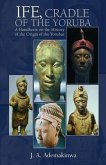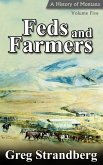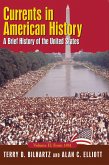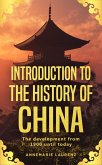"Delaney...chides white Masons for refusing to deal with black Masons on equal terms." - Martin R. Delany: A Documentary Reader (2003)
"Black Mason's embrace of this gloriously gendered and racialized narrative of the Masonic genesis is attributable to... Delaney...an early architect of black nationalism." - National Imaginaries, American Identities (2021)
"The explicit purpose of this treatise...was to respond to attempts to undermine the authority of black Freemasons...blacks had been excluded from the U.S. Freemasons." - Liberation Historiography (2004)
"Delaney points out that black exclusivism was forced on blacks by the exclusionary practices of white racist Masons." - Martin Delany, Frederick Douglass, and the Politics of Representative Identity (2000)
Does white Masonry owe its Masonic inheritance to the genius of the black man, and were the first Masons black?
In 1853, Martin Robison Delany (1812 - 1885), an African-American abolitionist, journalist, physician, and writer, and arguably the first proponent of black nationalism published the short book, "The Origin and Objects of Ancient Freemasonry, Its Introduction Into the United States, and Legitimacy Among Colored Men."
The purpose of the book was to establish the legitimacy of black Freemasonry, which had come under attack as being fraudulent. Delaney bolsters the image of black freemasonry by establishing the roots of masonry date back to black men which included King Solomon among their ranks.
About the author:
Martin Robison Delany (May 6, 1812 - January 24, 1885) was an African-American abolitionist, journalist, physician, soldier, and writer, and arguably the first proponent of black nationalism. Delany is credited with the Pan-African slogan of "Africa for Africans."
Born as a free person of color in Charles Town, Virginia, now West Virginia (not Charleston, West Virginia) and raised in Chambersburg and Pittsburgh, Pennsylvania, Delany trained as a physician's assistant. During the cholera epidemics of 1833 and 1854 in Pittsburgh, Delany treated patients, even though many doctors and residents fled the city out of fear of contamination. In this period, people did not know how the disease was transmitted.
Delany traveled in the South in 1839 to observe slavery firsthand. Beginning in 1847, he worked alongside Frederick Douglass in Rochester, New York to publish the North Star. In 1850, Delany was one of the first three black men admitted to Harvard Medical School, but all were dismissed after a few weeks because of widespread protests by white students.
Delany dreamed of establishing a settlement in West Africa. He visited Liberia, a United States colony founded by the American Colonization Society, and lived in Canada for several years, but when the American Civil War began, he returned to the United States. When the United States Colored Troops were created in 1863, he recruited for them. Commissioned as a major in February 1865, Delany became the first African-American field grade officer in the United States Army.
After the Civil War, Delany went to the South, settling in South Carolina. There he worked for the Freedmen's Bureau and became politically active, including in the Colored Conventions Movement. Delany ran unsuccessfully for Lieutenant Governor as an Independent Republican. He was appointed as a trial judge, but he was removed following a scandal. Delany later switched his party affiliation. He worked for the campaign of Democrat Wade Hampton III, who won the 1876 election for
"Black Mason's embrace of this gloriously gendered and racialized narrative of the Masonic genesis is attributable to... Delaney...an early architect of black nationalism." - National Imaginaries, American Identities (2021)
"The explicit purpose of this treatise...was to respond to attempts to undermine the authority of black Freemasons...blacks had been excluded from the U.S. Freemasons." - Liberation Historiography (2004)
"Delaney points out that black exclusivism was forced on blacks by the exclusionary practices of white racist Masons." - Martin Delany, Frederick Douglass, and the Politics of Representative Identity (2000)
Does white Masonry owe its Masonic inheritance to the genius of the black man, and were the first Masons black?
In 1853, Martin Robison Delany (1812 - 1885), an African-American abolitionist, journalist, physician, and writer, and arguably the first proponent of black nationalism published the short book, "The Origin and Objects of Ancient Freemasonry, Its Introduction Into the United States, and Legitimacy Among Colored Men."
The purpose of the book was to establish the legitimacy of black Freemasonry, which had come under attack as being fraudulent. Delaney bolsters the image of black freemasonry by establishing the roots of masonry date back to black men which included King Solomon among their ranks.
About the author:
Martin Robison Delany (May 6, 1812 - January 24, 1885) was an African-American abolitionist, journalist, physician, soldier, and writer, and arguably the first proponent of black nationalism. Delany is credited with the Pan-African slogan of "Africa for Africans."
Born as a free person of color in Charles Town, Virginia, now West Virginia (not Charleston, West Virginia) and raised in Chambersburg and Pittsburgh, Pennsylvania, Delany trained as a physician's assistant. During the cholera epidemics of 1833 and 1854 in Pittsburgh, Delany treated patients, even though many doctors and residents fled the city out of fear of contamination. In this period, people did not know how the disease was transmitted.
Delany traveled in the South in 1839 to observe slavery firsthand. Beginning in 1847, he worked alongside Frederick Douglass in Rochester, New York to publish the North Star. In 1850, Delany was one of the first three black men admitted to Harvard Medical School, but all were dismissed after a few weeks because of widespread protests by white students.
Delany dreamed of establishing a settlement in West Africa. He visited Liberia, a United States colony founded by the American Colonization Society, and lived in Canada for several years, but when the American Civil War began, he returned to the United States. When the United States Colored Troops were created in 1863, he recruited for them. Commissioned as a major in February 1865, Delany became the first African-American field grade officer in the United States Army.
After the Civil War, Delany went to the South, settling in South Carolina. There he worked for the Freedmen's Bureau and became politically active, including in the Colored Conventions Movement. Delany ran unsuccessfully for Lieutenant Governor as an Independent Republican. He was appointed as a trial judge, but he was removed following a scandal. Delany later switched his party affiliation. He worked for the campaign of Democrat Wade Hampton III, who won the 1876 election for
Dieser Download kann aus rechtlichen Gründen nur mit Rechnungsadresse in A, D ausgeliefert werden.









